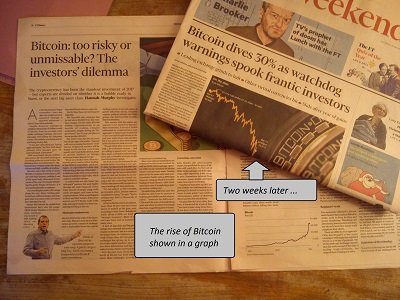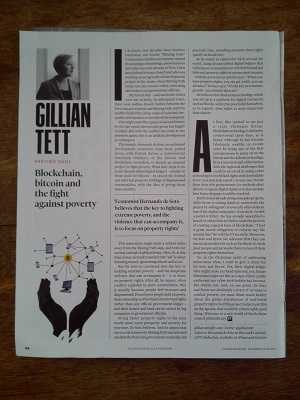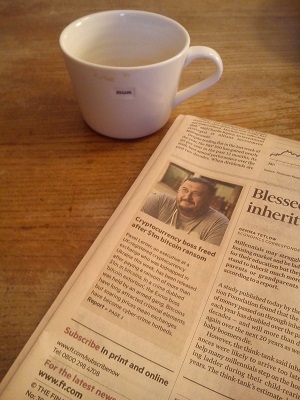One thing I love about the modules I teach is that stuff we learn on them is always popping up in the news. On DD103: Investigating the Social World, we start off exploring the topic of money and over the holidays I saw some money-related news items so juicy that instead of just sharing them on my Tutor Group Forum, I decided to write a blogpost about them.
In an early module video about the history of money (in 10 minutes), we find out that money is largely based on trust. Early attempts to link money to a gold standard were abandoned in the 1970s when we finally admitted that as long as we believe in it, money works (The Open University, 2017a).
Bitcoin is a recent development which demonstrates this. As long as we believe in it, bitcoin is just as good as any national currency - but there are huge fluctuations in public trust (perhaps manipulated by those who hope to rake in bitcoin while it's at a low point and then cash in when our trust in it rises again?).

In DD103 we also learn about rights, and particularly rights to territory. (In money we may trust, but I think we all feel more secure if we 'own' property.)
DD103 looks at the efforts of indigenous peoples like the Awa (The Open University, 2017b), the Surui (The Open University, 2017c) and the Dongria Kondh (Bhagwat et al, 2015, pp.149-160), to protect their relationship with the land when logging or mining companies seek to exploit local timber and minerals. Our module material shows how Google maps, the armed forces and state laws are all used in support of local groups against multinational commercial agencies over land rights. This article by the anthropologist and economist Gillian Tett describes thinkers about bitcoin looking to tackle inequality and poverty by supporting peoples around the world in online registration of land rights through blockchain databases.

Among the disciplines covered in DD103 is criminology. An article I saw just this morning hints at a murkier side to bitcoin, which has attracted criminal activity in a number of ways. Not only was this bitcoin executive ransomed in bitcoin - presumably harder to trace than used $ bills, but the article here mentions that the e-currency has attracted considerable cyber-crime activity.

And finally, I saw this video on Facebook. In one minute, Nas Daily explains how, with a 'broken' economy, citizens of Zimbabwe have managed to develop e-money which is faster and more efficient than the systems we use in developed nations.
There are lots of exciting new stories about 'money' in today's world. The combination of philosophy, geography, criminology, economics, sociology, social policy, environmental and international studies which makes up DD103 helps me understand how 'money' is developing in a potentially cashless society.
References
Bhagwat, S., Jones, N. and Mohan, G. (2015). 'Indigenous lands and territories: mapping the commons' in Drake, D.H., Morris, A., Shipman, A. and Wheeler, K. (eds) Investigating the Social World 2, Milton Keynes, The Open University.
The Open University (2017a). 'The History of money in 10 minutes' [Video], DD103 Investigating the social world, Available at: https://learn2.open.ac.uk/mod/oucontent/view.php?id=1050377§ion=6.1 (accessed 30/12/2017)
The Open University (2017b). 'Our World: Saving the Awa tribe' [Video], DD103 Investigating the social world, Available at: https://learn2.open.ac.uk/mod/oucontent/view.php?id=1050399§ion=4.1 (accessed 30/12/2017)
The Open University (2017c). 'Trading Bows and Arrows for Laptops: Carbon and Culture' [Video], DD103 Investigating the social world, Available at: https://learn2.open.ac.uk/mod/oucontent/view.php?id=1050399§ion=5 (accessed 30/12/2017)